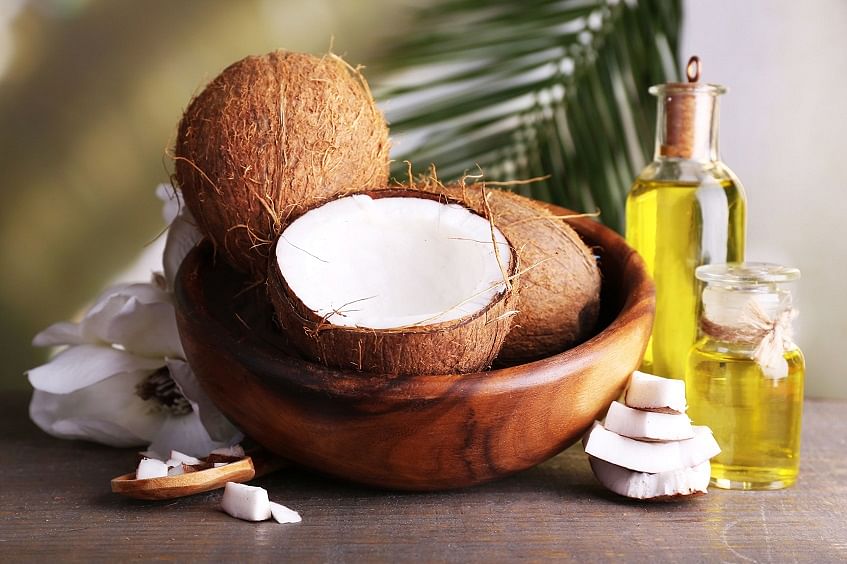Professor Karin Michel’s statements are unsubstantiated and inconsiderate, writes horticulture commissioner BNS Murthy.
Bengaluru: A top official in the agriculture ministry has written to Harvard University, demanding that one of its professors retract her statements describing coconut oil as “pure poison”.
In July, Karin Michels of the Harvard T.H. Chan School of Public Health caused a stir after ranking coconut oil as “one of the worst foods one can eat”, adding that the high number of saturated fatty acids in the oil make it bad for consumption.
Responding to her comments, B.N.S. Murthy, the horticulture commissioner in the agriculture ministry, has sought corrective measures from Harvard, apart from a retraction.
In a carefully-worded letter, dated 28 August and addressed to the dean of faculty at Chan, Murthy has dismissed Michel’s statements as being controversial, stating that contemporary studies have demonstrated coconut oil’s health benefits.
Also read: Harvard professor claims coconut oil ‘pure poison’. Don’t take her word for it just yet
“Dr. Michel’s statements are unsubstantiated and inconsiderate. Moreover, there is no evidence that coconut oil consumption is linked to heart disease, inflammatory diseases but rather, contemporary studies have shown that coconut oil is healthy,” reads the letter.
Murthy states that with the comments section of the YouTube video, which features Michel’s remarks, being disabled, he was forced to write the letter to “safeguard” Indian coconut farmers.
“In India, the coconut sector plays a significant role in poverty alleviation and employment generation especially among the weaker sections of the society. The industry provides livelihood to about more than 12 million farm families,” the letter reads.
‘Lot of research in favour of oil’
Murthy told ThePrint that there was a lot of research demonstrating the health benefits of coconut oil.
“A mere google search throws up so many scientific papers. There was even a recent, wide-scale survey that showed that over 70 per cent of Americans also understood the health benefits of coconut oil,” he said.
His view was backed by experts such as Ishi Khosla, a clinical nutritionist at the Centre For Dietary Counselling, Delhi.
“There is ample research that points to the improvement of health through the introduction of just this one food. Such statements from an esteemed university are myopic and damaging, and I’m glad India is hitting back at them,” said Khosla.
“It’s unfortunate we don’t have a body of modern research on traditional foods and it’s high time the West starts recognising our nutrition as more than just fads”.
Khosla further said that the “so-called researchers” were responsible for driving out healthy fats from our diets.
“For so many years, we’ve been consuming products that are harmful to heart health. Saturated fat-laden vanaspatis were sold as heart-friendly cholesterol-free edible vegetable oils, despite the ill effects of trans fats being known since the ’60s,” she said. “Naturally occurring saturated fats are demonised for being inflammatory for the heart, although clinical studies and personal experiences show otherwise.”
A staple not just in India
Coconut oil has been used for centuries, not only in India but also in several South East Asian, Central American, and Polynesian cultures. Indeed, coconut oil is today fast becoming an essential commodity in developed nations, thanks to increased nutritional awareness. It has gained rapid prominence in the beauty community both for topical applications as well as consumption.
Apart from a couple of contested claims (oil-pulling, detoxification), Murthy’s letter too lists out several known health benefits of coconut oils.
Also read: The bajra that can fight India’s iron deficiency problem
“I still haven’t heard from Harvard yet,” said Murthy. “I will be raising the issue with our honourable agriculture minister and shall write a follow-up letter soon.”
Interestingly, a month after her statement, a doctor from Michels’ very school wrote in Harvard Health Publishing that coconut oil also gives the “good” cholesterol a boost.
“Plant-based oils are more than just fats,” said Walter C. Willett on Harvard’s website. “They contain many antioxidants and other substances, so their overall effects on health can’t be predicted just by the changes in LDL and HDL.”
Harvard University remained unavailable for comment. This story will be updated when the university responds.
